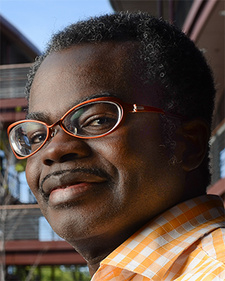Dendrocentric Learning for Synthetic Intelligence

Abstract: Artificial intelligence now advances by performing twice as many floating-point multiplications every two months, but the semiconductor industry tiles twice as many multipliers on a chip every two years. Moreover, the returns from tiling these multipliers ever more densely now diminish because signals must travel relatively farther and farther. Although travel can be shortened by stacking multipliers tiled in two dimensions in the third dimension, such a solution acutely reduces the available surface area for dissipating heat. We can transcend this thermal constraint 3-D chips face by moving away from synaptocentric learning to dendrocentric learning. Synaptocentric learning weights inputs precisely to detect a spatial pattern of activations. Dendrocentric learning orders inputs meticulously to detect a spatiotemporal pattern of pulses. With the help of a computational model of a dendrite and a conceptual model of a ferroelectric device that emulates it, I will illustrate how dendrocentric learning artificial intelligence—or synthetic intelligence for short—could run not with megawatts in the cloud but rather with watts on a smartphone.
Bio: Kwabena Boahen is a Professor of Bioengineering and of Electrical Engineering at Stanford University, with a courtesy appointment in Computer Science, and an investigator in the Bio-X Institute and the Wu Tsai Neurosciences Institute. He founded the Brains in Silicon Lab at Stanford to link neuronal biophysics to cognitive behavior through computational modeling and to emulate the brain with silicon chips through neuromorphic engineering. His interest in neural networks developed soon after he left his native Ghana to pursue undergraduate studies in Electrical and Computer Engineering at Johns Hopkins University, Baltimore, in 1985. He went on to earn a doctorate in Computation and Neural Systems at the California Institute of Technology in 1997. From 1997 to 2005 he was on the faculty of University of Pennsylvania, Philadelphia PA, where he was the inaugural holder of the Skirkanich Term Junior Chair. His research has resulted in over a hundred publications, including a cover story in Scientific American featuring his lab’s work on a silicon retina and a silicon tectum that “wire together” automatically (May 2005). He has been invited to give over a hundred seminar, plenary, and keynote talks, including a 2007 TED talk, “A computer that works like the brain”, with over seven hundred thousand views. He has received several distinguished honors, including a Packard Fellowship for Science and Engineering (1999) and a National Institutes of Health Director’s Pioneer Award (2006). He was elected a fellow of the American Institute for Medical and Biological Engineering (2016) and of the Institute of Electrical and Electronic Engineers (2016) in recognition of his lab’s work on Neurogrid, an iPad-size platform that emulates the cerebral cortex in biophysical detail and at functional scale, a combination that hitherto required a supercomputer. He has led several multi-university, multi-investigator research efforts, including one that raised the level of abstraction at which neuromorphic chips are ‘programmed’ by co-designing hardware and software (Brainstorm Project). A spin-out from his Stanford lab, Femtosense Inc (2018), is commercializing this breakthrough.
A pizza lunch for attendees will be available at 12:00 p.m.